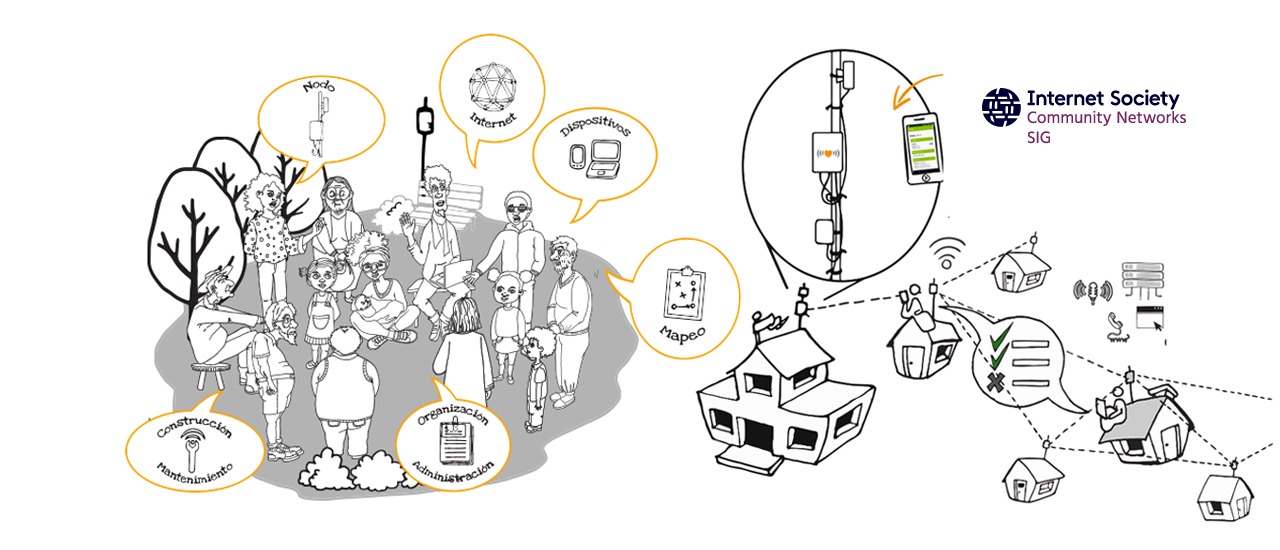Since their inception, community networks have depended on modifying existing off-the-shelf routers to adapt them to their particular needs. Software development originated in community-network groups and the free software movement as a whole have pushed the barrier of innovation and helped commercial enterprises develop new products over the years.
The LibreRouter, created by the collaboration of the Internet Society Community Networks Special Interest Group (CNSIG) and AlterMundi with the support of Beyond the Net Funding Programme, is an open-source hardware WiFi router designed for the specific needs of community networks.
The LibreRouter Project works to achieve autonomy and technological sovereignty that allows deploying, managing, scaling, and sustaining community networks. The reality is that community networks are not a profitable market segment for the industry. This means that the equipment used is not adequate to solve the particular needs they have. To manufacture the equipment you have to be encouraged to understand it and do it in a different and integral way.
Besides the hardware development, the most important part of this project is the integral work that involves software solutions and documentation material. It’s an important work focused on the communities themselves having the capabilities to deploy their own autonomous communication infrastructures and exercise their right to collective creation of the Internet.
How it works
In a nutshell, the LibreRouter is a weatherproof 3-radio wireless router, but it is much more than that. It comes from the same factory as LibreMesh, which is an operating system for geek-free wireless mesh networks that makes it easy for a non-technical community to do the deployment, maintenance, and expansion of the network.
Using its two 5 GHz radios and sector antennas, the LibreRouter automatically forms a mesh network with other LibreRouters within range. Using the 2.4 GHz radio, it creates a hotspot around it for clients to connect to the network, and the resulting mesh network enables communication between all the devices connected to it. Moreover, if any router on the local network connects to other networks (such as Internet) all devices on the local network automatically have access to the external network through the mesh.
The Special Interest Group on Community Networks (SIG CN) brings together 14 organizations and the diverse experiences of community networks from all over the world. As part of the collective work and experience, the need for the development and implementation of an organized remote support system for networks deployed with LibreRouter was identified.
This stage of the project has a special relevance since the need to provide remote technical support and the creation of training spaces for regional technical references were identified with great force in the last Latin American Summit of Community Networks. This was reflected in the final document drawn up collectively.
Goals:
This stage of the LibreRouter Phase II project was presented and chosen for the Beyond the Net Program and its main objectives are:
- Design and implement a dashboard so that the support team can perform statistics, respond, and follow up on requests for support from the communities.
- Develop a support and follow-up request mechanism (on the client side) that allows temporary access to the community network that requests assistance to coordinate and perform actions with the assistance team remotely.
- The development of this initial stage of the organized remote support system is fundamental to continue building tools that allow lowering barriers when deploying community networks.
AlterMundi wrote a chapter on the FreeRouter for The Community Network Manual: How to Build the Internet Yourself. This volume is jointly published by Fundação Getulio Vargas (FGV), the International Telecommunications Union (ITU), and the Internet Society. It is the result of the 2018 call for papers of the UN IGF Dynamic Coalition on Community Connectivity (DC3) and is the Official 2018 DC3 Outcome.
Watch Nico Echániz’s presentation of the LibreRouter during the Internet Governance Forum 2018 in Paris:
Do you have a great idea to make your community better via the Internet? Apply for a Beyond the Net grant, which funds projects up to $30,000 USD, and follow Beyond the Net on Twitter!

